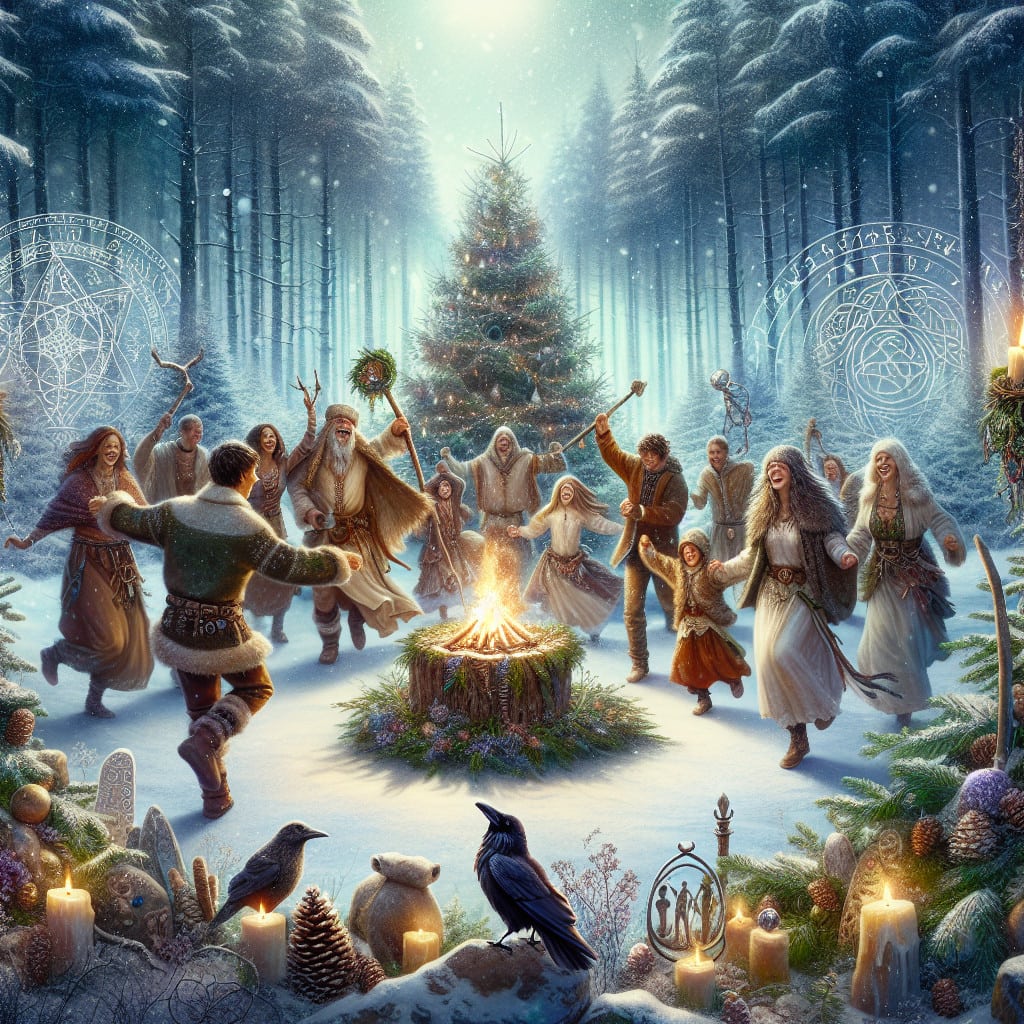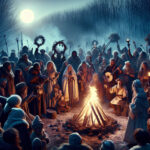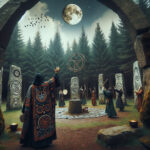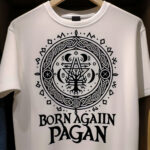Christmas is often seen as a religious holiday, but in many parts of the world it is celebrated in a variety of ways. This article will explore the pagan roots of the Christmas holiday and how it has been adapted and celebrated through the ages. We will look at how ancient pagan traditions have been blended with Christian practices, and how they are still celebrated in some parts of the world today. We will also explore the similarities between pagan and Christian practices and how they have influenced each other. Finally, we will look at how pagan rituals can be incorporated into modern Christmas celebrations. So, if you’re looking to add a little bit of ancient magic to the holiday season, then read on!
Christmas is a time for joy and celebration, and for many people, this celebration includes pagan customs and traditions. While Christmas as we know it today has been heavily influenced by Christianity, there are still many elements of paganism that have survived throughout the centuries. From the ancient Roman and Germanic gods to the modern-day Yule log and mistletoe, there are many ways in which pagan beliefs and customs can still be found in today’s Christmas celebrations.
What Is Paganism?
Paganism is an umbrella term that refers to a variety of ancient and modern religions and belief systems. It is often associated with polytheism, the belief in multiple gods, as well as animism, the belief that all living things have a spiritual essence. Paganism has many different forms and can be found in cultures all around the world.
The Origins of Christmas
The celebration of Christmas has roots in many different cultures and religions. One of the earliest known celebrations of Christmas was the Roman festival of Saturnalia, which was held in honor of the god Saturn. This festival was celebrated from December 17th to the 23rd and included feasting, gift-giving and the decoration of evergreen plants.
The Germanic people also had a winter celebration that was held in honor of their gods. This celebration, known as Yule, was held from December 21st to January 1st and included feasting, drinking and the burning of a Yule log. Over time, these pagan festivals began to blend with Christian traditions and eventually evolved into the Christmas we celebrate today.
Pagan Elements in Christmas Celebrations
Pagan traditions and beliefs still have a strong presence in modern-day Christmas celebrations. The Yule log, which was traditionally burned during the Germanic Yule festival, is now a common Christmas decoration in many countries. In some parts of the world, evergreen plants are still used to decorate homes and public spaces during the holiday season.
Another popular Christmas tradition that has pagan origins is the giving of gifts. This was originally a part of the Roman Saturnalia festival and was meant to honor the gods and goddesses. Over time, this tradition became associated with the Christian story of the Three Wise Men who visited baby Jesus and gave him gifts.
Mistletoe is another popular Christmas decoration that has its roots in paganism. It was originally used in Celtic and Nordic cultures as a symbol of fertility and good luck. In some parts of the world, it is still used as a good luck charm during the holiday season.
Conclusion
Christmas is a time for joy and celebration, and it has been heavily influenced by pagan beliefs and traditions. From the ancient Roman and Germanic gods to the modern-day Yule log and mistletoe, there are still many elements of paganism that can be found in today’s Christmas celebrations. Whether it’s the giving of gifts or the burning of a Yule log, pagan customs are still alive and well during the holiday season.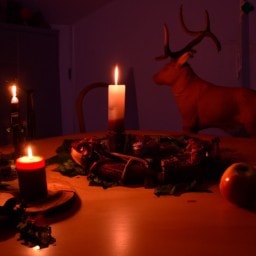
Christmas is a time for joy, celebration and family. It is a time for us to come together and celebrate the birth of Jesus Christ, or for some, the solstice and the coming of the new year. Although the origins of Christmas are rooted in pagan traditions, it has become a holiday that is celebrated around the world, no matter what your religious beliefs may be. Whether you celebrate the birth of Christ or the solstice, Christmas is a time to reflect on the importance of family, love and giving. So, no matter how you choose to celebrate Christmas, make sure to take the time to appreciate all that it stands for. This holiday season, take the time to celebrate the joy, love and peace that Christmas brings.

